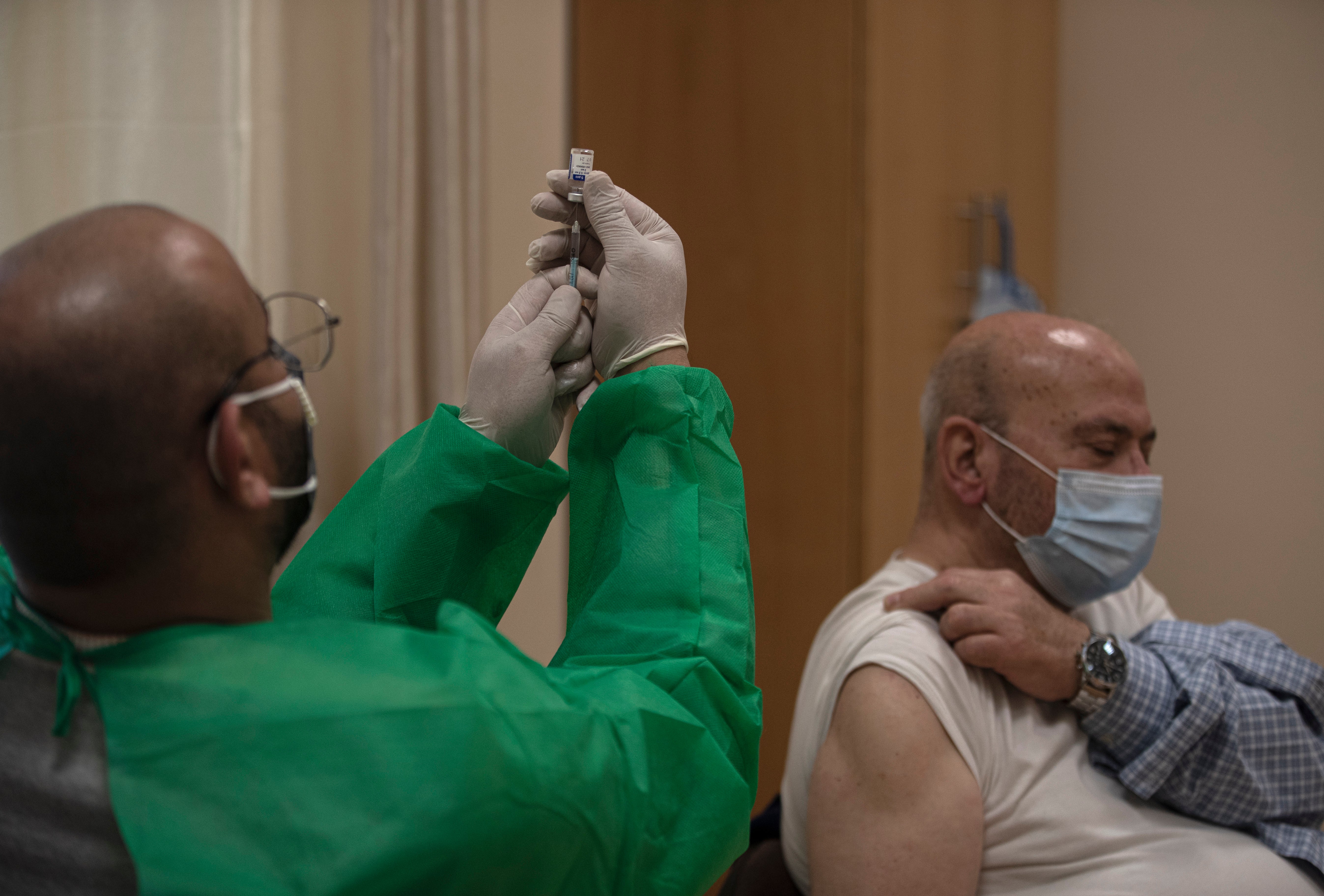Report: Money key to reverse pandemic losses for poor
More than 60 international agencies are calling for immediate financing to put gains for developing countries back on track after the COVID-19 pandemic

Your support helps us to tell the story
From reproductive rights to climate change to Big Tech, The Independent is on the ground when the story is developing. Whether it's investigating the financials of Elon Musk's pro-Trump PAC or producing our latest documentary, 'The A Word', which shines a light on the American women fighting for reproductive rights, we know how important it is to parse out the facts from the messaging.
At such a critical moment in US history, we need reporters on the ground. Your donation allows us to keep sending journalists to speak to both sides of the story.
The Independent is trusted by Americans across the entire political spectrum. And unlike many other quality news outlets, we choose not to lock Americans out of our reporting and analysis with paywalls. We believe quality journalism should be available to everyone, paid for by those who can afford it.
Your support makes all the difference.More than 60 international agencies are calling for immediate financing to put gains for developing countries back on track after the COVID-19 pandemic led to widening inequalities, the worst recession in 90 years, an estimated 120 million people pushed into extreme poverty and significant losses of tax revenues, trade and foreign investment for many countries.
The Financing for Sustainable Development Report 2021, released by the United Nations on Thursday, also pointed to an estimated 114 million jobs lost during the pandemic, a decrease in remittances which are critical to many poorer countries, and rising debt.
U.N. Deputy Secretary-General Amina Mohammed told a news conference launching the report that its message is “clear and stark:" COVID-19 has led to an even more sharply unequal world that is leaving millions of people behind, and without immediate action on financing U.N. development goals for 2030 are at risk. They include ending extreme poverty, achieving gender equality, free primary and secondary education, and reducing inequality.
Mohammed said an unprecedented $16 trillion in stimulus and recovery funds helped to mitigate “the worst effects of this global disaster, but less than 20 percent of that has gone to developing countries.”
“We see the same imbalance in the vaccine rollout,” she said. “Sixty percent of the COVID vaccine supply was reserved by a handful of wealthy countries, leaving the vast majority of the world years behind. Some developing countries may not receive the vaccine until 2024.”
While half the least developed and low-income countries faced a high risk of debt distress before the pandemic, the report said that the disease has sent debt levels soaring.
Despite partial debt relief, Mohammed said, “six countries are now in default while 42 have had their credit rating downgraded, making a global debt crisis increasingly likely.”
“If we don’t drastically increase financing for development, we will prolong the pandemic by years and face another lost decade for development,” she said.
The report urges immediate action from governments including rejecting “vaccine nationalism” and stepping up contributions to the World Health Organization’s ACT-Accelerator program, which includes the COVAX facility to buy and deliver vaccines for the world’s poorest countries. It says over $20 billion is needed to close this funding gap for 2021.
The report calls for richer countries to meet the target of spending 0.7% of gross national income on international aid and provide liquidity and debt relief support so developing countries can fight COVID-19 and its economic and social fallout. It also urges a global solution for taxation of the digital economy to combat corporate tax avoidance and improved use of technology to combat illicit financial flows.
Mohammed said governments also need to invest in people, social protections, sustainable infrastructure and green jobs and reform tax, trade and debt systems.
While the U.N. goals are off track as a result of COVID-19, she said, the pandemic is also an opportunity to build back better and “begin to change the investment trajectory” and transition to a green economic with greater connectivity and a different energy mix.
“Opportunities abound,” Mohammed said. “It’s about whether we have the political will to come together to actually capture them and not allow the window to close on future generations.”